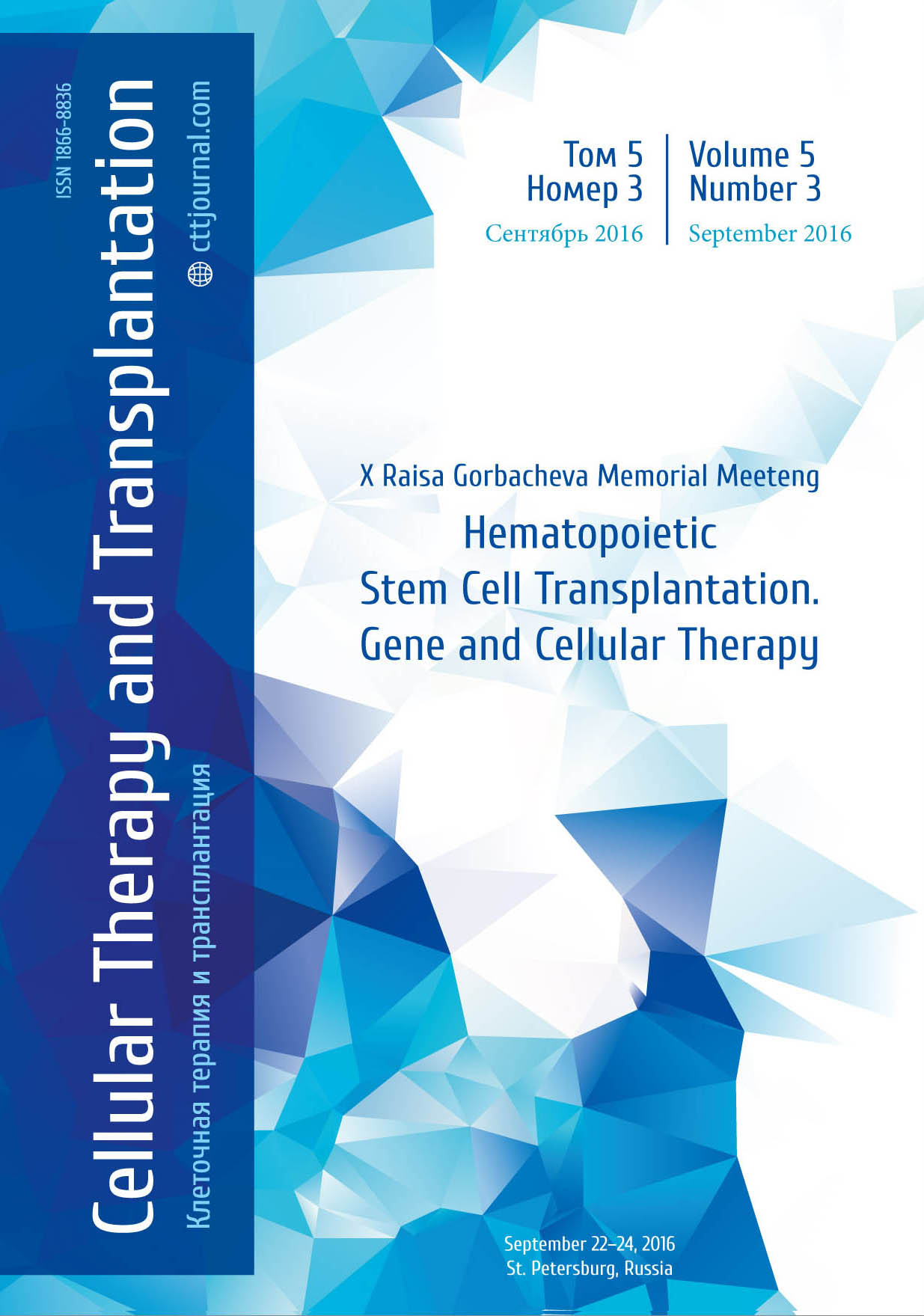Nursing care for adolescents with graft versus host disease after allogeneic hematopoietic stem cell transplantation
Contact: Anastasia A.Kraeva
E-mail: irulkina_pochta@mail.ru
Accepted 20 September 2016
Summary
Background
Graft versus host disease (GVHD) is a common severe complication after allogeneic hematopoietic stem cell transplantation (allo-SCT). Management of GVHD is based on multidisciplinary approach. In particular, nursing care and psychological support play an important role, especially, in children and adolescent patients. The aim of our study was to define incidence of acute and chronic GVHD in teenagers undergoing allo-SCT and to assess a role of nursing for the treatment process, patient care and psychological support. Patients and Methods The data were collected from 87 recipients of allo-SCT with acute and chronic GVHD. All the patients suffered from oncohematological disorders. Age of patients varied from 14 to 20 years.
Results
Frequency of acute GVHD was 59% (n=51), and incidence of chronic GVHD was 14% (n=12). Both types of GVHD, acute and chronic, were observed in 27% (n=24). Involvement of skin and mucous membranes was observed in 49% (n=43), affection of gastrointestinal tract was revealed in 31% (n=27), liver was involved in 19.5% (n=17). Incidence of GVHD after unrelated HLA-matched allo-SCT was 67% (n=58), after haploidentical allo-SCT, the incidence of GVHD was 18% (n=15), and only 15% (n=13) after related HLA-matched allo-SCT. All the patients also filled a questionnaire depicting quality of life (QoL). Up to 65% teenagers with GVHD had psychological problems (depression, misbehavior, abnormal communication with relatives and others). Most of these problems were directly induced by GVHD or by GVHD-associated limitations. QoL was also influenced by long-lasting steroid therapy, prolonged duration of hospitalization and problems in communication with counterparts. We developed recommendations for GVHD patients and their relatives on regime and care. Introduction of these recommendations improved management of patients with GVHD.
Conclusion
Clinical nurses should be aware of GVHD and associated problems in teenagers after allo-SCT. Patients with GVHD require high professional level of nursing (including psychological support for patients and relatives). Development of universal recommendations for patient care after allo-SCT will significantly improve the quality of treatment.
Keywords
Host-versus-gra disease, adolescents, incidence, nursing care, quality of life
Accepted 20 September 2016


